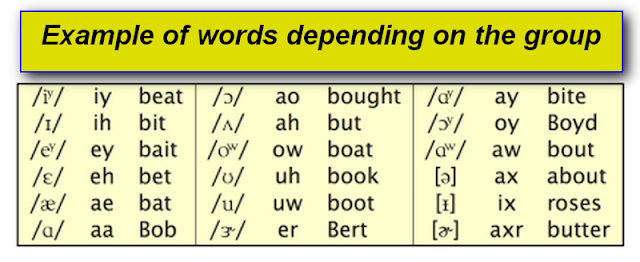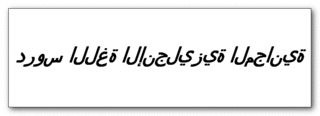ENGLISH WORDS ARE MADE UP OF SOUNDS
LEARN WHAT THESE SOUNDS SOUND LIKE
GET GOOD AT MAKING THESE SOUNDS......and You Will Get Really Good at Speaking English
byRobert Farmilo
(Note: there are many free pronunciation software applications waiting for you at the end of this lesson.)
Many of my English language students tell me they want to sound like a native English speaker.
I hear comments like this, "Robert, you know I try and try to change my accent...but it seems nothing I do really works. What can I do?"My answer is this: "Learn the basic sounds of the English language. It is not easy. It is very detailed hard work."
PLUS there is a BIG PAYOFF for you doing all this detailed hard work.
WHAT IS THE BIG PAYOFF?
Getting a solid grounding in the sounds that make up all English vocabulary is the heavy lifting you MUST do to take the next BIG improvement step in YOUR pronunciation skill with the English language.
When you pay attention to the sounds that make up the words, a strange and wonderful thing starts to happen---when someone talks to you in English, you will begin to understand MORE of what they are saying.
VIDEO: Ricky Ricardo "reads" perfect English
Here are the study words from the video for you to practice:
BOUGH
ROUGH
THROUGH
COUGH
ENOUGH
▼▼▼ Click this to hear these words ▼▼▼
What are the sounds of the English language?
The Key Sounds of English
44 Phonemes and 4 Blends
44 Phonemes and 4 Blends
Where should your mouth go when you enunciate English words?
Where should your tongue go?
This link has a really cool tool that shows you exactly where to put your tongue for any of the sounds that make up English words.
You are going to discover an entire suite of tools you can use for free to radically improve your ability to pronounce English words.
 |
| Click Here to Get the Free Tools! |
HOW TO PRONOUNCE THE SOUNDS OF ENGLISH
>>> https://allesl.com/pronunciation-sounds-of-english/BIG TIPS FOR YOU TO QUICKLY IMPROVE THE WAY YOU PRONOUNCE ENGLISH WORDS
- Watch the mouth of the native English speaker.
- Observe the way their mouth moves while they are talking.
- Notice where the mouth goes, the shape the mouth takes when the person is speaking to you.
- Move your mouth the same way when you speak English.
- NOTE: Copy the mouth movements from native English speakers who have good diction.
Next Big Tip:
- Learn where to put your tongue.
- Each sound that you make requires your tongue to be in the correct position.
- You must learn how much time your tongue needs to be in any one specific position while you make a sound.
- Sometimes part of your tongue will have to be a bit out and in-between your lips. (Like when you make a "th" sound.)
WATCH THIS SHORT VIDEO
Try to Say the Words!
Try to Say the Words!
Here is a brief list of the most difficult English words to pronounce:
- Worcestershire
- Choir
- Squirrel
- Anemone
- Isthmus
- Sixth
- Penguin
- Colonel
- Otorhinolaryngologist
- Rural
What are the most difficult sounds in the English language for non-native English speakers?
R --- /r/Try saying my name, "Robert." IF it comes as "Lob Bert," you know you have a problem with where your tongue is going during your intonation of the "R" sound.
H --- /h/
Ask a native French speaker to say some words that begin with the letter "h."
House, home, horse, hearse, heard...you might notice that they leave the "h" out --- and so the words sound like this, "'Ouse, 'ome, 'orse, 'earse, 'eard."
L --- /l/
When the "L" sound comes at the beginning, middle or end of a word...the way you make the sound is the same.
This can be very difficult for a Chinese native speaker learning English.
What Are Some of the MOST Difficult English Words for a Native Chinese Person Who Is Trying to Speak English?
Words like "lilly, little, lamb, please, like."What about when you try and say this word: ENGLISH?
And it sounds like, "...ENG-GRISH..." or "...ENG-GRESH...."
This is the moment in time when you suck-it-up, Buttercup...and go in deep inside your mouth---and get your tongue involved to help you intone the "L" sound.
Touch the top of the tip of your tongue to the back of your top teeth gum line. This ONLY lasts a moment.
HOW TO PRONOUNCE "L"
DH --- /ð/ TH --- /θ/
This is the famous "th" sounds that comes with these words: thou, thee, thy, thine, thyself; they, them, their, theirs, themselves.
And there are more words: there, then, than, thus, though, thence, thither.
Let us not forget the words: this, that, these, those.
Plus...therefore, thereupon, thereby, thereafter, thenceforth.
Then there are the words with "th" in the middle of the words...like these words: heathen, farthing, fathom, bother, brother, dither, either, farther, father, further, heather, lather, mother, northern, other, rather, smithereens, slither, southern, together, weather, whether, wither.
Check out words with "th" at the end of a word: bath, breath, cloth, froth, health, hearth, loath, mouth, sheath, sooth, tooth/teeth, width, wreath.
Finally, here are some of the EXCEPTIONS. Don't get tricked by these words. They do NOT get the "TH" treatment:
Many Spanish speaking people have some trouble with the English word "is."
They often say, "eeeessss." So it sounds more like the word "ease" than the word "is."When the native Spanish speaker says this word, their mouth often makes the smiling position used when pronouncing a word beginning with the letter "E."
Is is pronounced "iz."
IS is a verb...
...3rd person singular present indicative of the verb "to be."
https://pronunciationstudio.com/spanish-speakers-english-pronunciation-errors/
http://confidencelearningservices.com/english-spanish-mispronounce/
PRONUNCIATION IMPROVEMENT SOFTWARE
Next comes the best FREE software to help you pronounce English. When you use the software, you are going to be giving yourself the extra coaching necessary for you to not only speak better English and be understood---but you are also going to understand other people better when they speak English to you.
In fact, our research shows that when you practice pronunciation skills, your actual comprehension of spoken English improves, too.
Want to find out how good you are at listening to AND understanding spoken English?
Take these tests:
>>> https://download.cnet.com/Pronunciation-English-School-for-Windows-10/3000-20414_4-77597642.html
http://learningenglishresource.blogspot.com/2018/08/how-to-use-tests-to-improve-your.html
http://learningenglishresource.blogspot.com/2018/08/complete-list-of-english-grammar-tenses.html
http://learningenglishresource.blogspot.com/2018/08/how-to-be-able-to-think-in-english.html
http://learningenglishresource.blogspot.com/2018/08/i-want-you-to-write-five-sentences-each.html
http://learningenglishresource.blogspot.com/2018/09/do-you-want-to-learn-more-english.html
http://saundz.com/5-most-difficult-english-sounds-for-esl-students/
https://www.myenglishteacher.eu/blog/phonetics-consonants-vowels-diphthongs-ipa-chart/
http://www.onestopenglish.com/skills/pronunciation/pronunciation-exercises/pronunciation-exercises-starter/beginner/146259.article
https://pronunciationstudio.com/english-difficult-pronounce/



















nice
ReplyDelete